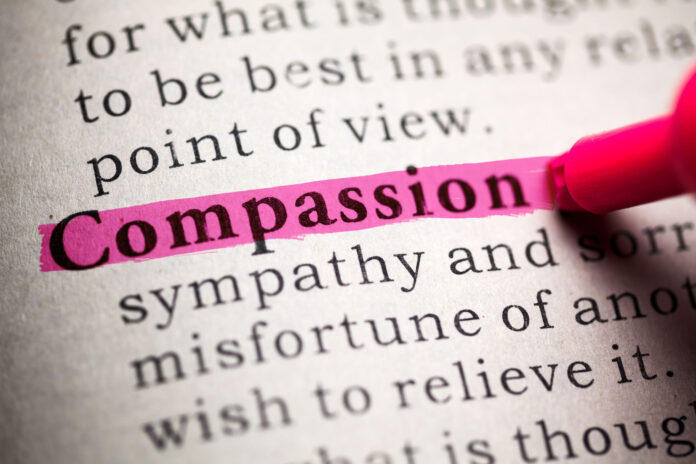Dr Sarah Waseem
We are living through difficult and indeed frightening times. Pandemics have come and gone but there is something about Covid-19 that has gripped us in the Western world, like no other before it. Our African friends who suffered so tragically during the Ebola crisis, know all about the impact of isolation, fear, and stigma, but this is new for most of us. Covid-19 has spread worldwide, affecting our lives in ways that many of us could never have envisioned in our wildest dreams.
Never before have we witnessed such restrictions on our basic freedoms such as the right to travel, the right to socialize in public spaces, the right to a choice of goods and the right to meet one another as measures are taken to prevent the spread of this disease. Most countries have imposed travel bans. Borders have been closed. Entertainment venues have been closed. Businesses have had to find ways for staff to work remotely, while many self-employed people face losing their livelihoods. Collective anxiety has resulted in panic buying and the hoarding of food and every day goods by some, leading to unprecedented scenes of fights over food and basic supplies in stores.
However, while disrupted supply chains are slowing down manufacturing and international travel, we are also seeing people rallying together to support and assist each other. Major retailers are collaborating to ration supplies and are changing opening hours to help their more vulnerable customers. As governments are forced to impose isolation on us, communities have found innovative ways to rally together within the constraints of social isolation. In Spain and Italy, neighbours in flats have been singing to each other across their balconies and even exercising together ‘but apart’. In the UK volunteers are flocking into help the National Health Service.
Harvard scientists and their Chinese colleagues are collaborating to develop a Covid-19 vaccine. The sharing of knowledge concerning the effects of Covid-19, on an international scale, has become paramount and rather than assigning blame, countries are collaborating to develop a vaccine. These are indeed the ‘best of times and the worst of times’, for only by supporting and working together that can we solve our problems. As compassion therapists Chris Germer and Kristin Neff have said,
”The choice is between reacting with fear or responding with kindness.”
It is this spirit of compassion that the founder of the Ahmadiyya Muslim Community, Mirza Ghulam Ahmad (as), instructed Ahmadi Muslims to follow. He wrote:
“The principle to which we adhere is that we have kindness at heart for the whole of mankind. If anyone sees the house of a Hindu neighbor on fire and does not come forward to help extinguish the fire, most truly I declare that he does not belong to me. If anyone of my followers, having seen someone attempting to murder a Christian does not endeavor to save him, I most truly declare that he does not belong to us.” (Siraj-e-Muneer, Roohani Khazain V. 12 p 28)
Compassion is at the core of Islamic teachings. The first chapter of the Holy Qur’an reminds us that Allah is ‘The Gracious and the Merciful’.
In Chapter 107, verses 3-7 of the Holy Quran, Allah the Almighty states:
‘…the one who drives away the orphan, and urges not the feeding of the poor. So woe to those who pray, but are unmindful of their prayers. They only like to be seen of men.’
Islamic teachings even help us understand who our neighbours are. The Holy Prophet of Islam (peace and blessings of Allah be upon him) said that a person’s neighbours include at least the forty houses around him. In fact, the angel Gabriel emphasized the rights of neighbours so much that the Prophet Muhammad (peace and blessings of Allah be upon him) thought they would be included in one’s will. It is this belief that drives members of the Ahmadiyya Muslim community to help at this time of need. Organizations like Humanity First, a charity run by members of the community, Lajna Ima’illah (the Ladies’ auxiliary organization of the community), Khuddamul Ahmadiyya (males under 40), and Ansar- ul Ahamdiyya (males over 40) are all striving to help their nations survive with practical offers of assistance as well as emotional support.
As His Holiness, Hazrat Mirza Masroor Ahmad (aba) has directed, “Indeed, the Holy Quran has declared that the prayers of those who do not fulfill the rights of mankind will never be accepted by God Almighty and, to the contrary, will prove the means of their destruction… Let it be clear that it is the religious duty of every Muslim to fulfill the needs of humanity and to treat every person, irrespective of their caste, creed or color, with grace, love, and affection.” (address at the opening of new mosque in Southall Uk 23/02/20)
Covid-19 has also made us ask searching questions of how we co-exist as a global community. His Holiness, Hazrat Mirza Masroor Ahmad (aba) commented in 2013 at an address to Parliamentarians in the UK,
“The world has become a global village and so a lack of mutual respect and a failure to join together to promote peace will not only harm the local area, city or country but in fact will ultimately lead to the destruction of the entire world.” (Address at Houses of Parliament in London, UK on Centenary of Ahmadiyya Muslim Community in UK 11/06/13)
Covid19 is a turning point for our society. The world as we know it, may never be the same again. I believe that compassion for ourselves and our fellow beings will help us move forward. How we tap into this compassion when we feel so frightened, is the question. For some, it will be part of their nature, and for others, it will be their faith.
Source: The Review of Religions












